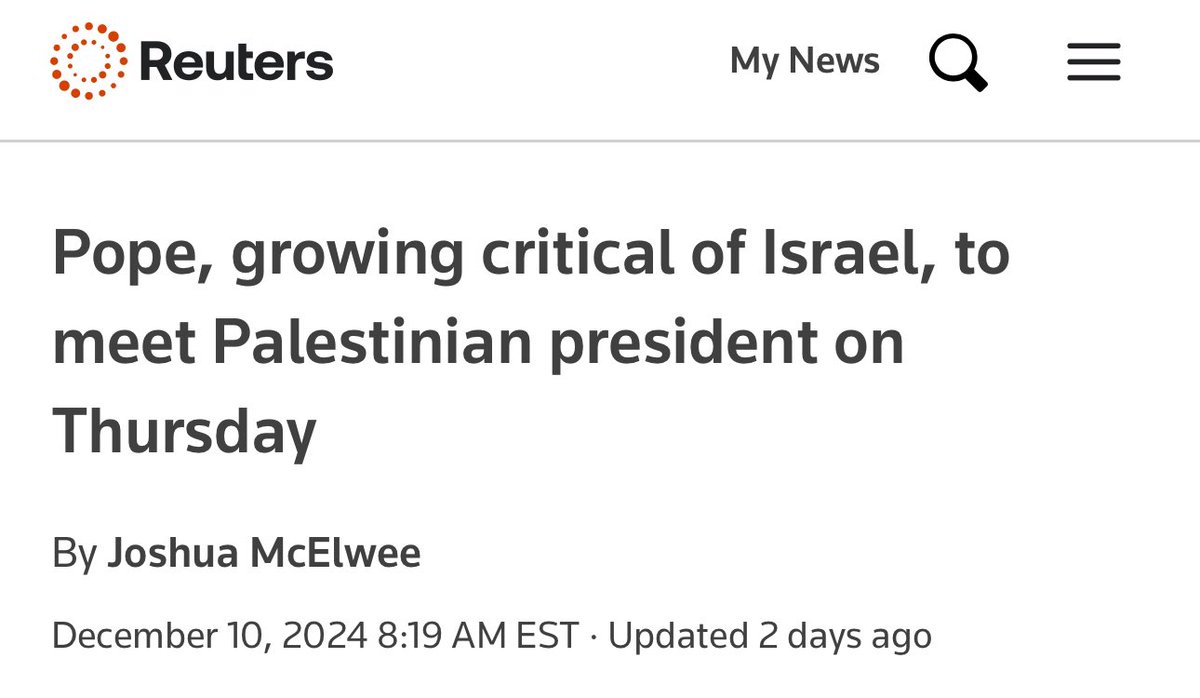I must admit, I like the current Pope. He was no friend of Epstein, he does not take bribes and he is not afraid of going to heaven. A shining beacon in the darkest days of humanity. May Allah protect him. https://x.com/R34lB0rg/status/1867115722666807794/photo/1

Pope Francis indeed stands out among his predecessors for the boldness and clarity with which he engages in political and humanitarian issues. Here's how his approach compares to some of his predecessors:
Pope John Paul II: While Pope John Paul II was very influential in international politics, particularly in Eastern Europe during the fall of communism, his approach to the Israeli-Palestinian conflict was more nuanced. He made historic visits to both Israel and Palestine, advocating for peace and the rights of both peoples, but his public statements were often more diplomatic and less likely to use provocative symbols or language than those of Pope Francis.
Pope Benedict XVI: Known for his theological acumen, Benedict XVI took a more reserved approach to political issues. His papacy did not emphasize political stances as visibly as Pope Francis does. However, he did continue the Vatican's support for a two-state solution and made gestures towards interfaith dialogue, though less dramatically than Francis.
Pope Paul VI: He was involved in significant diplomatic efforts, notably being the first pope to visit the Holy Land in 1964, but his focus was more on spiritual and ecclesiastical matters. His political engagement was more through the lens of Vatican diplomacy rather than public symbolic acts.
Pope Francis's approach is characterized by:
Direct Engagement: He has met with leaders from both sides of conflicts, including those in the Middle East, often using straightforward language to call for peace, justice, and humanitarian aid. His use of symbols like the keffiyeh in the nativity scene is a clear example of this direct engagement.
Humanitarian Focus: Francis often frames his political statements within a humanitarian context, emphasizing the plight of the poor, refugees, and victims of war. His comments on the Gaza situation, including the call for an investigation into genocide allegations, are part of this broader humanitarian advocacy.
Interfaith Dialogue: His actions promote dialogue between different religious groups, which often has political implications, especially in regions like the Middle East where religious identity plays a significant role in conflicts.
Social Justice: His papacy has been marked by a strong commitment to social justice issues, which naturally leads into political discourse when addressing global crises like those in Gaza or other conflict zones.
While previous popes have certainly engaged with political issues, Pope Francis has brought a new level of directness, symbolism, and public advocacy to the role of the pontiff, aligning his spiritual leadership with a visible commitment to humanitarian causes. This has sometimes put him at odds with political leaders but has also garnered him significant support among those who see his actions as a moral stand for peace and justice.